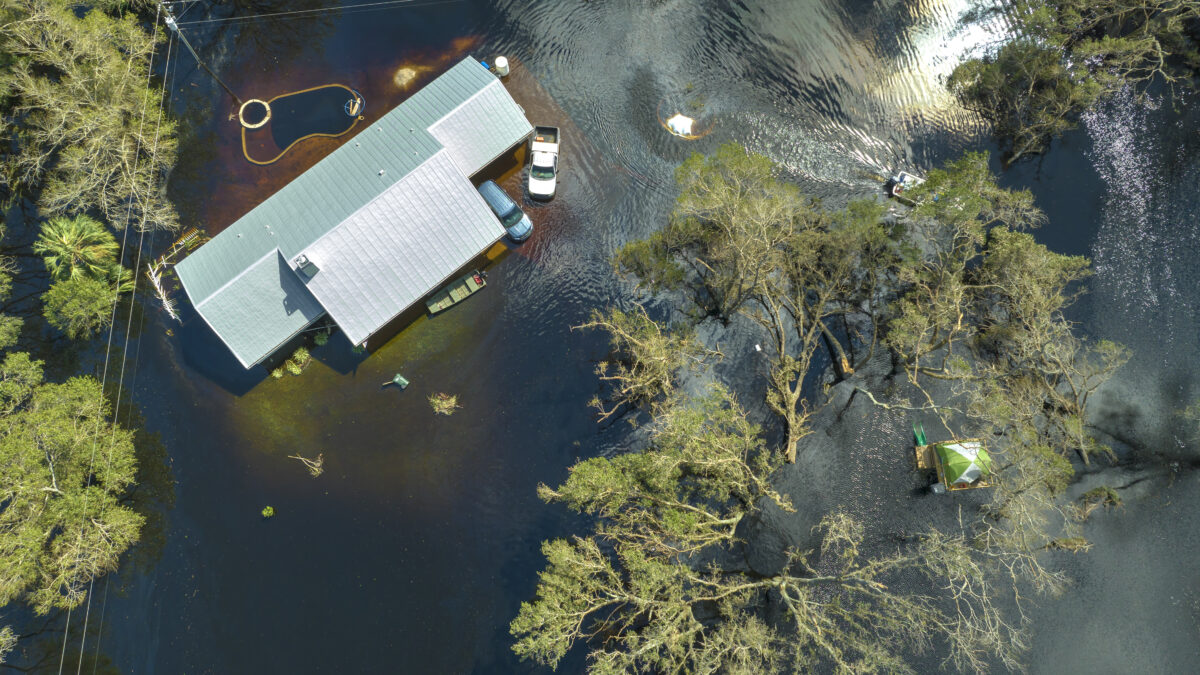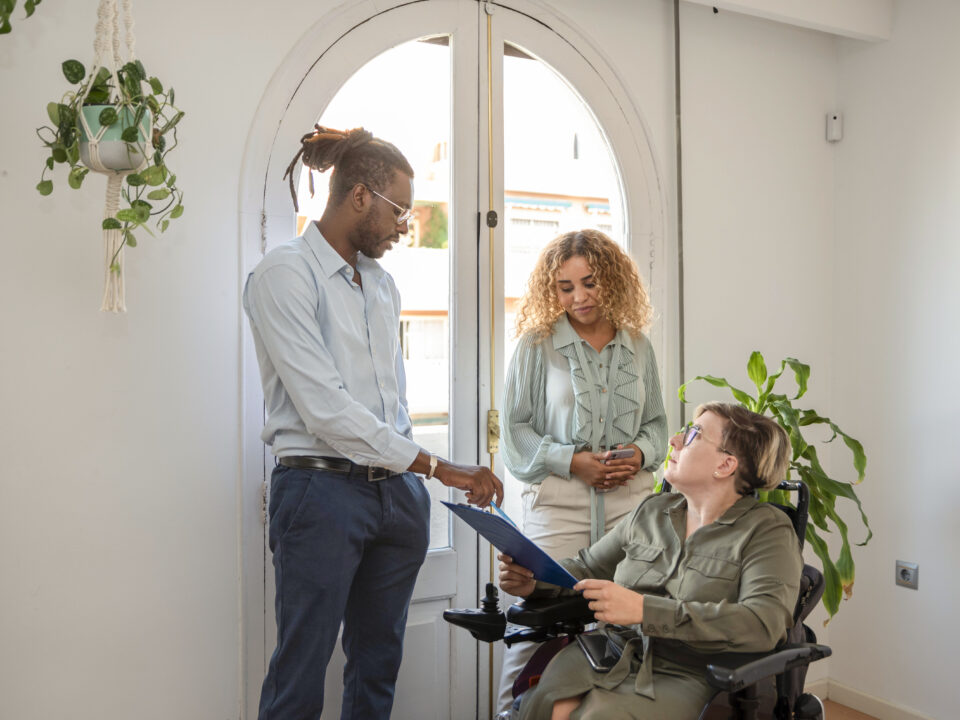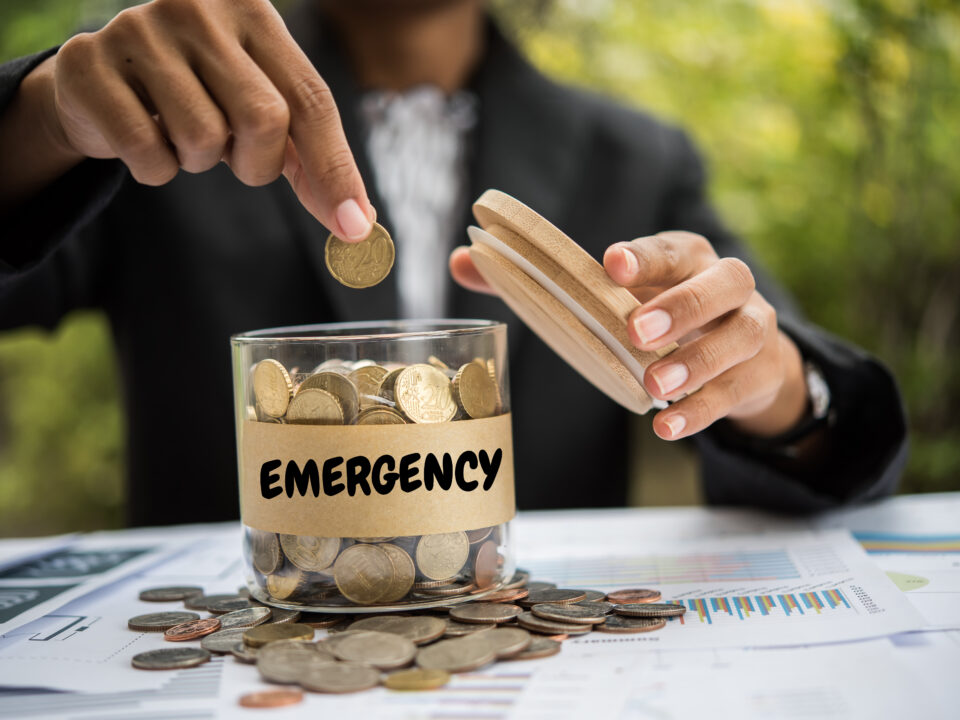
How Can I Save on Health Care Costs?
September 5, 2025
How Much Should I Have in My Emergency Fund?
September 16, 2025
How Do I Plan for Natural Disasters Financially?
Let’s face it: When a natural disaster strikes — whether it’s a wildfire, hurricane, flood, or earthquake — you’re probably not going to be in the best frame of mind to make calm, rational decisions. That’s why the smartest financial move you can make isn’t waiting until the moment disaster hits. It’s preparing well before it happens.
Because financially preparing for a natural disaster isn’t just about peace of mind — it’s about making sure you and your family can move quickly, recover faster, and avoid costly mistakes when time is of the essence.
Step One: Build Your Financial ‘Grab-and-Go’ Kit
If evacuation orders are issued, you might only have a few minutes to grab what you need. That’s not the time to go rifling through your filing cabinet or digging in your closet for your Social Security card. Instead, gather copies of your essential documents now, and store them together in one safe place:
Here’s what to include:
- A certified copy of your birth certificate
- Photo identification (driver’s license, passport, ID card)
- Social Security card
- Health insurance cards and basic medical records
- Homeowners or renters insurance policy declaration pages
- Auto insurance documents
- Home deeds and car titles
- Legal paperwork such as wills, powers of attorney, and health care directives
- Marriage certificate or divorce decree
- Bank and financial account statements
- A home inventory—photos or a video walkthrough of your belongings
All of these documents should be copied and stored in a sealable plastic bag or envelope, and backed up digitally (in the cloud or on a thumb drive). You may also want to have copies handy on your phone, saved to your photo library, in the event that you find yourself in a situation with little to no cellular reception or WiFi. The originals should be kept in a fireproof, waterproof safe — or even better, in a safe deposit box at your bank. The goal is to make sure you can prove who you are, what you own, and what you’re owed.
What’s Most Important to Include?
If you’re feeling overwhelmed, start with the items that would be the hardest to replace. Your birth certificate and Social Security card are two of the most critical — many other documents (like passports or vehicle titles) can’t be reissued without them.
Don’t forget about your digital trail, either. A smartphone video of your home’s contents, stored in your Google Drive or cloud storage, can make a big difference when it comes to filing insurance claims. Open drawers. Look inside closets. Take pictures of receipts if you have them. This inventory will make it easier and faster to file a claim—and harder for insurers to question what you lost.
The same goes for scanning documents like medical records or tax files. Just keep in mind that in the immediate aftermath of a disaster, you might not have internet access — so having physical backups or storing files on a portable drive is essential.
Step Two: Review Your Homeowners Insurance
Natural disasters are expensive. If your house is damaged or destroyed, insurance may be your only financial safety net. But here’s the thing: Not all policies are created equal. A standard homeowners policy may not fully cover the actual rebuilding cost of your home — or may exclude certain events like floods or earthquakes altogether.
So, take a moment to review your coverage:
- Make sure your policy covers both the structure of your home (also called “hazard” or “dwelling” coverage) and your personal belongings inside it. Personal coverage is typically for about half the amount of dwelling coverage.
- Do you have all the forms of coverage you need? For example, are you covered for floods, earthquakes, wildfires, hurricanes or anything else common in your area. If not, it’s something you’ll want to add. Sometimes the amount of flood coverage, for example, is limited by the government, but you can purchase an excess (i.e. additional) policy if you like — consider whether that makes sense for you given the risks in your area vs. the pricetag.
- Know how much you’ll be reimbursed: Is your policy based on actual cash value (which deducts for depreciation) or replacement cost value (which pays for what it would cost to replace items at today’s prices)? Replacement cost value is far better. Think about how fast items like electronics depreciate as soon as next year’s model hits the market. Most importantly, do you have the coverage you want? If not, it’s time to make changes.
- See if you have extended or guaranteed replacement cost coverage, which adds extra protection if prices spike after a widespread disaster. This is something to aim for, but you may not be able to get it. Because natural disasters have become so much more routine, fewer insurers are offering it than in past decades.
- Update your policy if you’ve made improvements — like a kitchen renovation or new roof — that increased your home’s value.
Step Three: Create an Emergency Go Bag
Your finances aren’t the only thing that needs to be ready. If you’re forced to evacuate, you’ll need a packed and portable bag with essentials to get you through at least a few days away from home.
What to include:
- Basic toiletries and pandemic gear (masks, hand sanitizer, wipes)
- A two-week supply of medications and over-the-counter remedies you regularly use
- A small medical file listing your prescriptions, allergies, and doctors’ contacts
- Clothing you can mix and match, that’s lightweight and quick-drying
- Sturdy shoes and flip-flops (for public showers or shelters)
- Copies of all key documents from your financial grab-and-go kit
- A list of emergency contacts and a designated meeting spot
- Cash — yes, the paper kind! — in small bills, in case ATMs or card readers are down
- Extra charging cables and backup batteries for your phone and electronics
- A small flashlight or headlamp
Include anything that makes you feel human and calm — maybe that means a favorite perfume, a scarf to cover unwashed hair, or a novel loaded on your Kindle. Comfort matters when the world feels like it’s spinning.
Step Four: Prep Your Family
Here’s the part many people forget: Make sure someone else in your household (or a trusted friend) knows where to find your grab-and-go bag and financial kit.
In a crisis, everyone should know where to go, who to call, and what the plan is — because you may not have time to explain it later.
The Bottom Line
Natural disasters are scary — but they don’t have to be financially devastating. The key is preparation. When you have your documents gathered, your insurance updated, and your bag packed, you’re not just ready for the worst — you’re protecting everything you’ve worked so hard to build.



